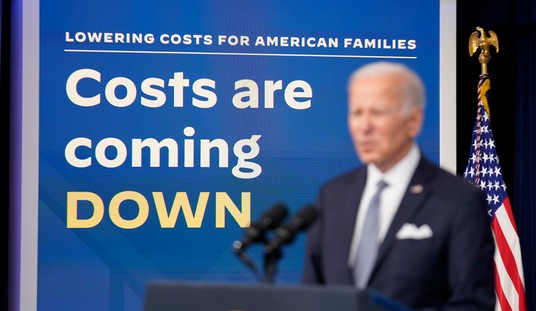Senate Minority Leader Chuck Schumer, D.-N.Y., has determined there is too much political speech in the United States coming from sources he cannot tolerate. So, he stood in front of the Supreme Court on Tuesday, along with Senate Minority Whip Dick Durbin, D.-Ill., to announce he is backing Democratic New Mexico Sen. Tom Udall's proposal to amend the First Amendment.
The First Amendment — as it now stands — includes 10 unambiguous words about freedom of speech.
"Congress," it says, "shall make no law ... abridging the freedom of speech."
Schumer and Udall do not like this sweeping restraint on government power. There are speakers whose speech they want to abridge. The Bill of Rights — as correctly interpreted by the Supreme Court — stands in their way. So, they are seeking to change it.
Specifically, in 2010, the Supreme Court voted 5-4 in Citizens United v. the Federal Election Commission that Americans enjoy the freedom of speech not only when they act as individuals but also when they form corporations.
In other words, a movie-making company has the same right to free speech as its owners individually do.
The same can be said for a book publishing company — or a company that manufactures lawnmowers or fishing rods.
In the United States, they all enjoy a freedom of speech that Congress "shall make no law" that abridges it.
For Schumer, this principle, which the court upheld in Citizens United, is gravely wrong.
"Few decisions in the 200 and some odd years of this republic have threatened our democracy like Citizens United," Schumer said on Tuesday.
"If I get to be majority leader with the help of my colleagues here and all of you, Citizens United will go. It must," he said.
"Overturning Citizens United," Schumer said, "is probably more important than any other single thing we could do to preserve this great and grand democracy."
Recommended
It was not Antonin Scalia, Clarence Thomas, Sam Alito or even John Roberts who wrote the court's opinion in Citizens United. It was Anthony Kennedy.
"The court has recognized that First Amendment protection extends to corporations," Kennedy wrote.
"If the First Amendment has any force, it prohibits Congress from fining or jailing citizens, or associations of citizens, for simply engaging in political speech," he said.
The court also concluded it was ridiculous for the government — as federal campaign-finance law then did — to try to distinguish between a "media" corporation and other types of corporations in order to exempt "media" corporations from restrictions the government sought to impose on the freedom of speech of non-media corporations.
"The exemption applies to media corporations owned or controlled by corporations that have diverse and substantial investments and participate in endeavors other than news," said the court. "So even assuming the most doubtful proposition that a news organization has a right to speak when others do not, the exemption would allow a conglomerate that owns both a media business and an unrelated business to influence or control the media in order to advance its overall business interest. At the same time, some other corporation, with an identical business interest but no media outlet in its ownership structure, would be forbidden to speak or inform the public about the same issue."
"This differential treatment cannot be squared with the First Amendment," said the court.
"The purpose and effect of this law," the court said, "is to prevent corporations, including small and nonprofit corporations, from presenting both facts and opinions to the public."
"When government seeks to use its full power, including the criminal law, to command where a person may get his or her information or what distrusted source he or she may not hear, it uses censorship to control thought," Kennedy wrote. "This is unlawful. The First Amendment confirms the freedom to think for ourselves."
And that is precisely what Schumer and Udall seek to stop.
Their Democracy for All Amendment, as they call it, deploys 106 words to amend the 10 words in the First Amendment that protect freedom of speech.
The final 22 words of their proposed amendment assure corporations that own news outlets that Schumer and Udall are not coming for them. They say: "Nothing in this article shall be construed to grant Congress or the States the power to abridge the freedom of the press."
There is no similar language to clarify that the amendment does not give Congress or the states the power to abridge "freedom of speech" for entities other than the "press" — because that is precisely the amendment's purpose.
The first section of the Udall-Schumer amendment, for example, gives Congress and the states the power to "set reasonable limits on the raising and spending of money by candidates and others to influence elections."
In plain English: The government can limit how much you speak about an election.
The second section specifically gives Congress and the states the power to "distinguish between natural persons and corporations or other entities created by law, including by prohibiting such entities from spending money to influence elections."
More precisely, it would give Chuck Schumer and his incumbent congressional colleagues the power to enact a law prohibiting corporations from saying such things as "This member of Congress has too little respect for the Constitution to serve faithfully under it."
























Join the conversation as a VIP Member